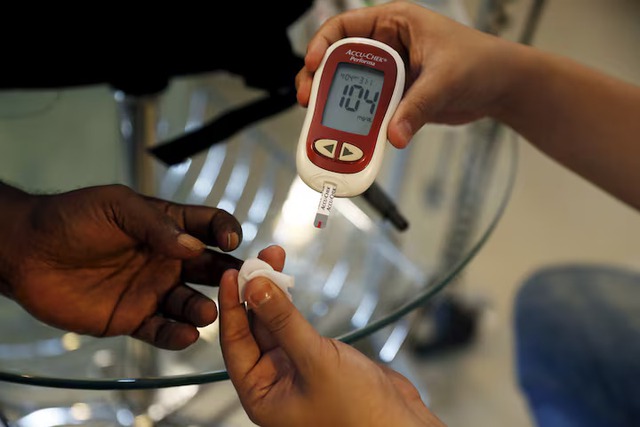
Japan team develops AI model to detect diabetes risk with ECG data
TOKYO -- A team of researchers from entities such as the Institute of Science Tokyo said Tuesday they have developed an artificial intelligence model that can detect a high risk of diabetes using only electrocardiogram (ECG) data.

A paramedic checks the blood sugar level of a diabetic patient, April 22, 2016. Photo: Reuters
This method, not requiring blood tests, leads possibly to early detection of the disease and helps those at high risk review their lifestyles, according to the team.
Tetsuya Yamada, professor at the university, and other team members divided about 16,000 people who underwent medical checkups in Tokyo in 2022 into a group of diabetics and prediabetics, with higher-than-standard blood sugar levels, and a group of subjects with normal readings.
The team fed an AI model with their ECG data to analyze the minuscule changes in cardiac muscle movement that appear in the prediabetic stage.
The result was that the model was able to identify people who are at high risk and who are not diabetics at about 85 pct and 70 pct accuracy, respectively.
A survey using watch-type wearable devices showed almost the same results.
Diabetes has few subjective symptoms in its early stages.
It is currently difficult to detect the disease or assess the risk of developing it without a blood test.
Meanwhile, completely curing patients is very hard after the onset of the disease, making detection at the prediabetic stage crucial.
Noting that the study using wearable devices will be continued, Yamada said, "If we can link ECG data with wearable devices and integrate them into wellness apps, this can be utilized as an index to review lifestyle habits."

Link nội dung: https://news.tuoitre.vn/japan-team-develops-ai-model-to-detect-diabetes-risk-with-ecg-data-103251111170224522.htm